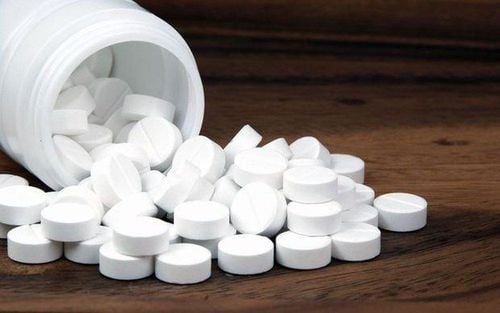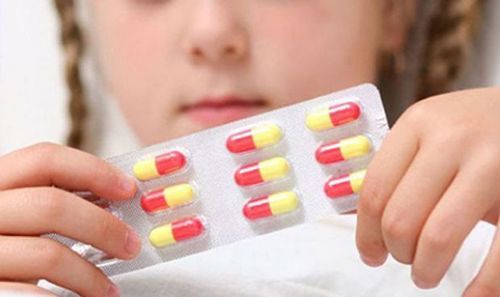This is an automatically translated article.
Drug allergy is a very common complication during treatment, with diverse clinical manifestations, with lesions in the skin, mucous membranes and internal organs.Video content is professionally consulted by Dr., Doctor Nguyen Van Dinh - Head of Allergy - Clinical Immunology Unit - Vinmec Times City Hospital
All drugs can cause allergic drug reactions, but drug allergies are most common in drug groups such as: antibiotics (betalactam drugs...), anticonvulsants, epilepsy , non-steroidal anti-inflammatory drugs (Aspirin, ibuprofen...) and drugs to treat gout are the drugs with the highest rate of causing allergic drug reactions.
Symptoms of drug allergy are very rich and varied on organs and organizations of the body. Signs of drug allergy occur manifest in mild, severe and severe forms. There are many symptoms of drug allergy without obvious symptoms that the patient cannot know such as vestibular disorders, kidney failure, blood cell loss...
Women are at risk Drug allergies are higher than men. Adults will be more susceptible to drug allergies than children, especially those with atopy (bronchial asthma, allergic rhinitis...). According to statistics, 11 out of every 100 people with a history of bronchial asthma or allergic rhinitis are at risk of drug allergies.
In addition, people with the HLA gene - B*15:02 will have a 200 times increased risk of carbamazepine allergy compared to the general population.
Signs of drug allergy that can be noticed is anaphylaxis causing:
Skin and mucous membranes: Erythema, pruritus, urticaria, angioedema, goose bumps, tingling, edema of the lips, tongue or palate , feel a metallic taste in the mouth, the rate is up to 90% of cases. Respiratory: Itching, stuffy nose, runny nose and sneezing; itching and "spasm" of the throat, difficulty breathing, hoarseness, wheezing, tightness in the chest, cough, cyanosis, occurs, the incidence is up to 70% of cases Gastrointestinal: Abdominal pain, nausea, vomiting, diarrhea diarrhea and difficulty swallowing, the rate of up to 45% of cases Cardiovascular: Dizziness; syncope, altered mental status, chest pain, palpitations, cardiac arrhythmias, hypotension, dysarthria, urinary incontinence or cardiac arrest, incidence up to 45% of cases When symptoms are noticed If the patient has a drug allergy, the patient should immediately stop injecting, oral, topical, eye drops, nose, ... If the allergy is mild, use anti-allergic drugs. Severe cases such as difficulty breathing, digestive disorders, chest tightness, rash all over the body... It is necessary to quickly bring the patient to the medical center for timely emergency treatment.
In order to limit the risk of drug allergies, patients need to follow the following rules:
Only use medicines for treatment according to the doctor's prescription and use drugs strictly according to the instructions of the treating doctor. . Do not arbitrarily buy drugs for self-treatment as well as recommend drugs to treat others because they simply think they have the same disease as you. Once you are allergic to any drug, absolutely do not use that drug again. In addition, the patient must remember the drug that causes allergies to his body, inform the doctor about the drug he has ever been allergic to, so that the doctor does not prescribe that drug anymore, the doctor will use it. alternative medicine to treat illness.
Please dial HOTLINE for more information or register for an appointment HERE. Download MyVinmec app to make appointments faster and to manage your bookings easily.














